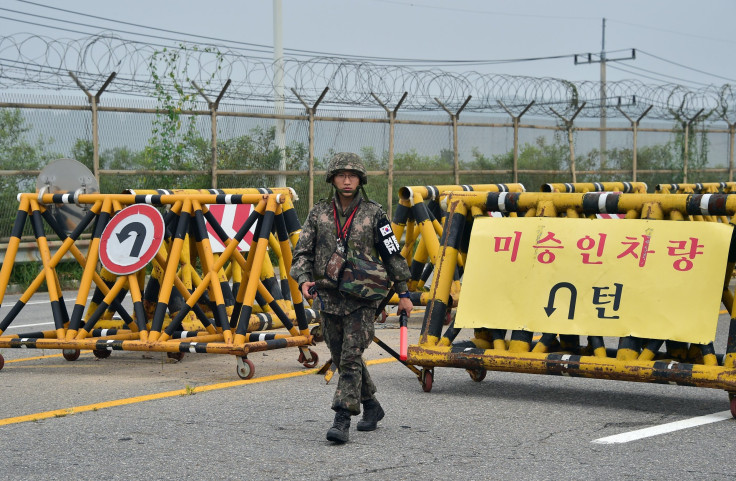Will North, South Korea Unify? Eventual Unification Through Peace Or Violence Will Happen, US Military Official Says

North and South Korea will eventually unify, either peacefully or as a result of violence, a senior U.S. military official said Monday. Speaking at the Defense One Summit in Washington, D.C., Army Chief of Staff Mark Milley noted that the two Koreas share the same language, making it highly likely the two nations will become one at some point, Radio Free Asia reported.
The U.S. military official said unification could be peaceful or violent, and the latter would be tragic for Koreans on both sides. The United States favors a gradual union through peaceful and diplomatic means, said Milley, who expressed concern over provocations between North and South Korea as well as the rise of Chinese influence, UPI reported.
While China is North Korea's chief economic partner, Milley said the Chinese government or its military is likely not capable of controlling the decisions being made in Pyongyang. Still, China could exercise influence over its longtime ally, he said.
Unification won't help South Korea age slower. Impoverished North Korea is aging fast, too, research says. pic.twitter.com/jMK9ImQQvt
— Sam Kim 김혜성 (@samkimasia) June 22, 2015
For years, North Korea has repeatedly threatened to strike the South without notice in retaliation for what it considers “provocations,” including protests or balloon launches to the North by South Korean groups, according to CNN. In August, South Korea accused the north of sneaking across the heavily guarded border and planting land mines near one of the South's military guard posts. Two South Korean soldiers were maimed after stepping on the bombs, the New York Times reported. Milley said Monday these provocations could trigger a large-scale war.
South Korea and U.S. officials expressed “grave concern” Monday over Pyongyang’s apparent plan to conduct a missile or nuclear test. U.S. Defense Secretary Ash Carter also announced Monday that Washington and Seoul had pledged to strengthen their combined defenses against what they call threats by North Korea. Carter called North Korea an “up-close, dangerous and continuing threat,” but did not announce further details on giving South Korea control of its own forces in the event of a North Korean attack. Carter said the U.S.-South Korea alliance "has never been stronger," and called Washington’s commitment to Seoul "iron-clad," the Associated Press reported.
The two countries have agreed that a long-delayed transfer of wartime control of South Korean forces from Washington to Seoul would happen after the South improves its capability to counter the North’s artillery force, among other developments.
"In the face of increasing threats, especially in the form of nuclear and missile threats from North Korea, we also agreed that the alliance needs to work in various ways to cooperate and to rise against and respond against these threats," Carter’s South Korean counterpart, Han Min-koo, said at the news conference Monday, according to AP.
© Copyright IBTimes 2024. All rights reserved.




















